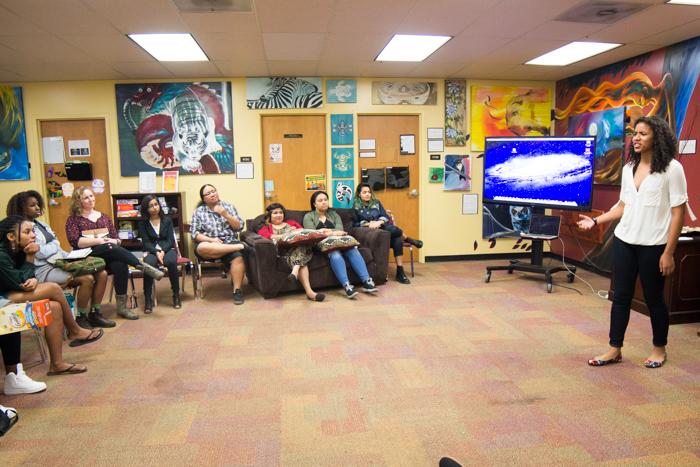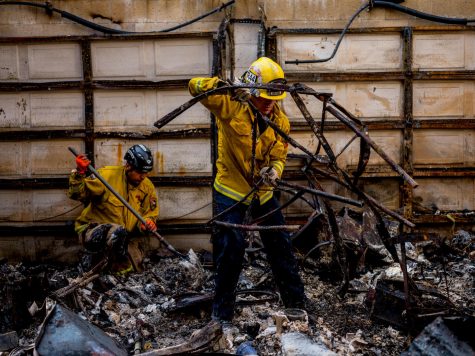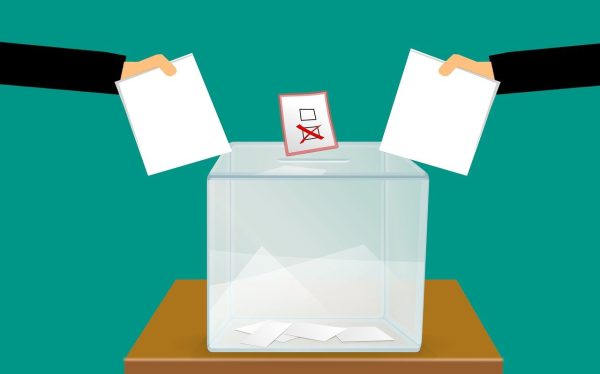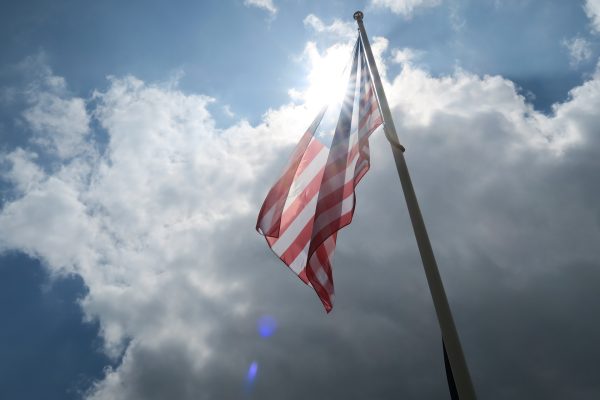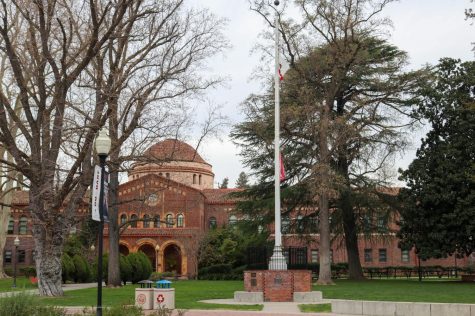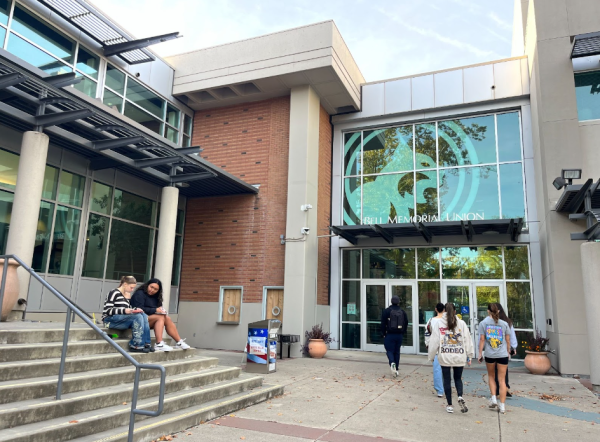Event helps students embrace biracial identities
Everyone was told to partner up with someone they didn’t know. A quick introduction with names was OK, but no further inquiries were allowed. Everyone had a piece of paper and a pen.
“Just look at your partner and guess. Where is your partner’s hometown?”
Anxious giggles filled the room before people began scribbling answers onto their scraps of paper.
“What do you think your partner’s major is?”
People acted as if concentrating really hard on one another could telepathically bring out some answers.
“Which of these do you think your partner was in high school: the nerd, the athlete, the loner or preppy?”
Clarifying questions ensued before the point of the activity became really obvious.
“What do you think your partner’s race is? What do you think your partner’s ethnicity is?”
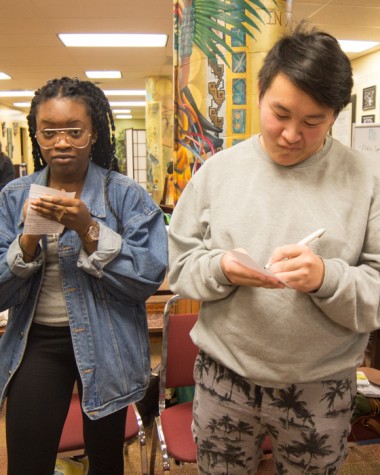
The room was quieting down with people seeming to grow concerned about being offensive. First impressions are essentially drawing conclusions about a person’s identity by making judgments based only on appearance, but usually we get to keep these assumptions to ourselves.

“First impressions are really important, and most of the time when we meet somebody, in our minds we already make up assumptions about where a person is from, what their ethnicity is and all these different things come to mind about what a person is,” said Jovan Smith, a graduate assistant for the Cross-Cultural Leadership Center.
“Growing Up Biracially African,” an event hosted by the CCLC, gave attendees the opportunity to learn more about the issues biracial people deal with, starting with first impressions and interweaving racial microaggressions, which are subtle slights toward people of color. The event also focused on the struggle of being forced to choose which cultural aspects to embody and which ones to hide.
The event was facilitated by Alexis Butcher, a junior psychology transfer student who wanted to get more involved in the CCLC and share more of herself and her passions with an interested audience. Butcher identifies as a “biracial Ghanaian woman” who has had people question her identity and culture her whole life.
“First it started off as being more about loaded words and microaggressions, but I realized that I really just wanted to talk about my story more and how difficult it can be growing up biracial,” Butcher said. “Then I just wanted people to be aware of the impact of what they’re saying.”
A debrief of the guessing activity led to a conversation about microaggressions. They showed a video to demonstrate how ridiculous those microaggressions sound when said to white people instead. It also challenged the way people choose to present themselves to feel more accepted by others to avoid daily insults.
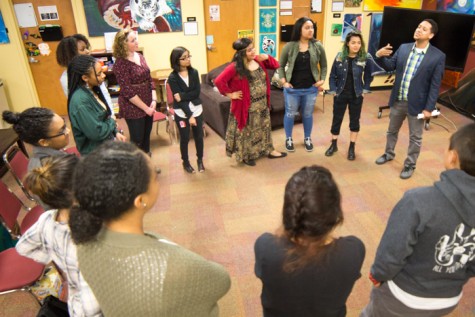
“When I hear these microaggressions, I often wonder how I should act. Should I speak with more slang so I’m more relatable? Or should I speak more properly, aka the ‘white way?’” Butcher said.
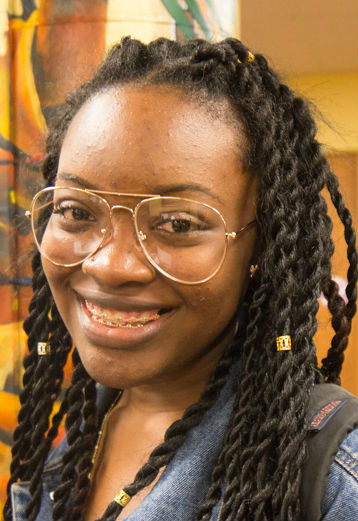
Choosing certain parts of one’s culture to display is difficult enough, but people who identify as biracial or multiracial are forced to choose between identities that seem to clash. This idea was the driving point for the next activity where Butcher had everyone choose between two things. The decision was nearly impossible for some, especially when it came to “Choose between your two favorite people,” or “Choose between two of your favorite memories.”
Having to commit to only one side revealed the internal struggle of having to deny something equally as personal, which is something that non-biracial people don’t have to experience as often.
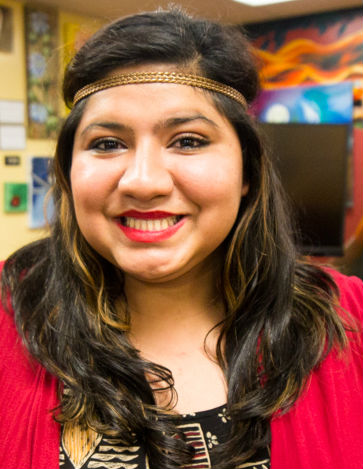
“You had to experience what they go through, and both my parents are black, so I never really realized how hard for them it is to choose which side to be a part of,” said Marqia Smith, first-year psychology major.
At the end, Butcher recounted her life story with the audience, emphasizing all the ways that she felt disconnected from her peers due to a lack of understanding and empathy. This led to a point in her life where she chose to ignore her race altogether.
“My friends accepted me for the most part, but they’d do little things that would remind me that I was different from them,” Butcher said. “We would have to laugh when they’d call me an Oreo, saying that I’m whitewashed, and they would tell me that I was the whitest black person they’d ever met. Or they didn’t see me as black, and these were all supposed to be compliments to me because it meant that I fit in.”
Ultimately, Butcher moved beyond feeling confused and questioning her identity, especially when she was given the space to explore her identity and be affirmed by people in the CCLC. Many people in attendance were peers who wanted to show support of Butcher’s journey.
“I wanted to support her on something she felt really passionate about,” said Griselda Avila, senior social science major and friend of Butcher. “I always like seeing people in environments that they thrive in because they’re really able to show who they are.”
Christine Zuniga can be reached at [email protected] or @kissssteen on Twitter.




